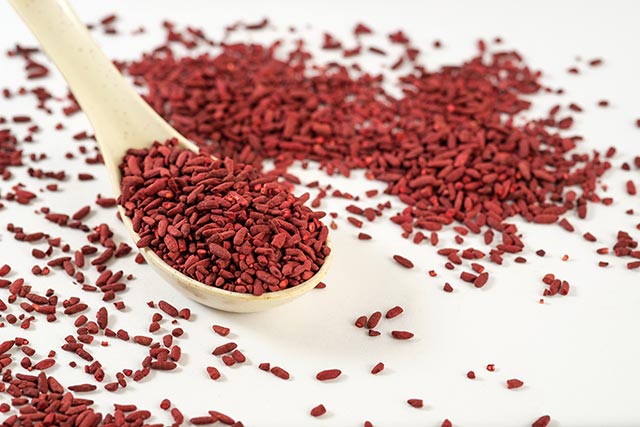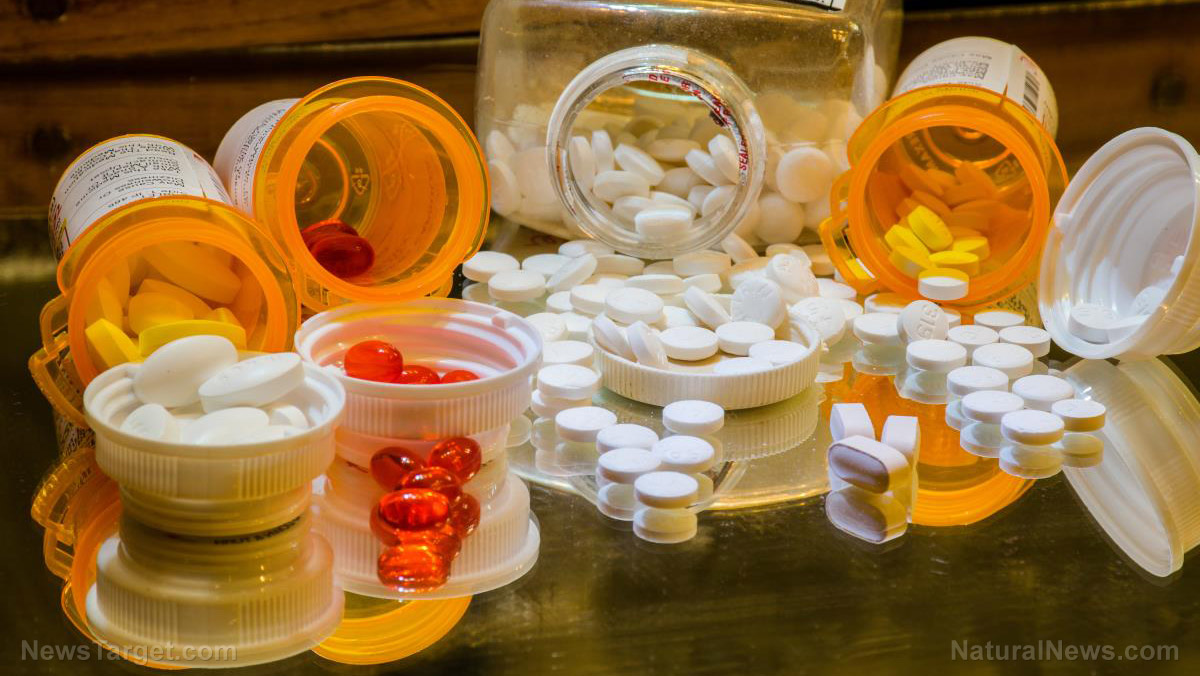Probiotics can help treat anxiety and depression, according to research
12/03/2019 / By Evangelyn Rodriguez

The state of microbial communities present in the gut greatly impacts overall health. A well-balanced microbial composition leads to surprising health benefits, while an imbalanced one triggers inflammation, which is the root cause of most diseases. To fix this imbalance, supplementation with probiotics — live bacteria that can restore gut microbial equilibrium — is the recommended solution by health experts. Probiotics not only promote digestive health, but they also alleviate gastrointestinal disorders like irritable bowel syndrome (IBS). In a recent article published in Nutrition Research, researchers from York University and McMaster University in Canada reviewed current literature to determine the influence of probiotic supplementation on anxiety and depression symptoms. While only a few studies have evaluated its effects on humans, the researchers still found evidence of psychological benefits, suggesting that the impact of probiotic supplementation reaches beyond the digestive system.
Probiotics, the “good bacteria” that improves mental health
The microbial communities present in the gastrointestinal (GI) tract is collectively known as GI or gut microbiota. In the past decade, several studies have explored and established the role of gut microbiota in human digestion, metabolism and immune function. Pre-clinical trials involving rodents have also demonstrated that alterations in these bacterial communities can cause behavioral and neurochemical changes in the central nervous system. On the other hand, supplementation with probiotics — the “good” bacteria — can cause significant improvements in behavior as well as central neurochemistry. Despite these findings, however, the significance of these mood-related and behavioral effects in humans is poorly understood.
Sponsored: NEW Biostructured Silver First Aid Gel created by the Health Ranger combines three types of silver (ionic silver, colloidal silver, biostructured silver) with seven potent botanicals (rosemary, oregano, cinnamon and more) to create a breakthrough first aid silver gel. Over 50 ppm silver, verified via ICP-MS lab analysis. Made from 100% Texas rain water and 70% solar power. Zero chemical preservatives, fragrances or emulsifiers. See full details here.
To address this, the researchers conducted a systematic evaluation of recent studies which focused on the effects of probiotic supplementation on human anxiety and depression. They searched multiple databases for randomized controlled trials (RCTs) published between January 1990 and January 2016. The researchers found a total of 10 relevant RCTs, four in clinically diagnosed and six in non-clinical samples, that supported the use of probiotics in alleviating anxiety and depression symptoms. Despite the methodological limitations of the trials and the complexity of gut-brain interactions, most of the studies hinted at the psychological benefits of probiotic supplementation.
Based on these reports, the researchers concluded that probiotic supplementation could potentially be used to improve the symptoms of anxiety and depression; however, a better understanding of developmental, modulatory and genetic influences on GI microbiota, especially in relation to mood and mental health, is needed and should be prioritized by future studies to solidify this. (Related: The health of your gut microbiome could predict your risk of heart disease, researchers find.)
The benefits of probiotics and good probiotic sources
Probiotics are the same — or similar to the — bacterial species naturally present in the human gut. But unlike pathogenic bacteria that cause diseases, these good gut bacteria help with many important functions, such as the digestion of food, the destruction of harmful or aberrant cells and the production of nutrients like vitamins.
Probiotics are commonly associated with fermented foods, like yogurt and health supplements. Two of the most well-known genus of probiotics are Bifidobacterium and Lactobacillus. Different types of bacteria belong to either genus, and each type or species confers its own unique benefits. Collectively, however, probiotic supplementation is credited with the treatment or prevention of the following:
- Bladder cancer recurrence
- Crohn’s disease (inflammation of the digestive tract)
- Diarrhea
- Digestive tract infections caused by Clostridium difficile
- Eczema (in children)
- Irritable bowel syndrome (IBS)
- Pouchitis (a surgical side effect after the removal of the colon)
- Stomach ulcers caused by Helicobacter pylori
- Urinary tract infections
- Vaginal infections
To enjoy the benefits offered by good gut bacteria, add a variety of probiotic-rich foods to your diet, such as:
- Kefir
- Kimchi
- Kombucha
- Miso
- Natto
- Pickles
- Sauerkraut
- Tempeh
- Traditional buttermilk
- Yogurt
Enhance your mood, beat anxiety and depression, and boost your digestive health by eating healthy and including probiotics in your diet.
Looking for other foods that offer the same benefits? Visit Food.news.
Sources include:
Tagged Under: alternative medicine, anxiety relief, beatdepression, depression symptoms, digestive health, food cures, food is medicine, functional food, immune system, mental health, natural cures, natural medicine, probiotics, research, supplements


















